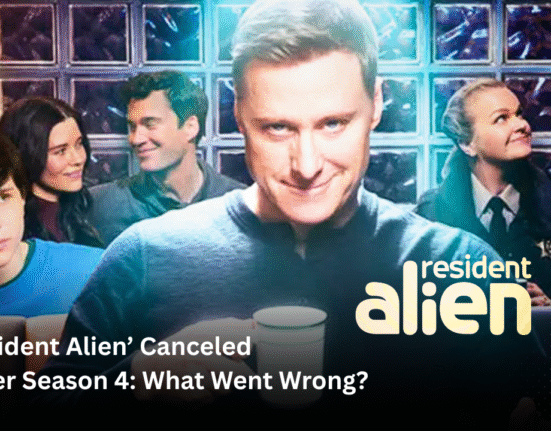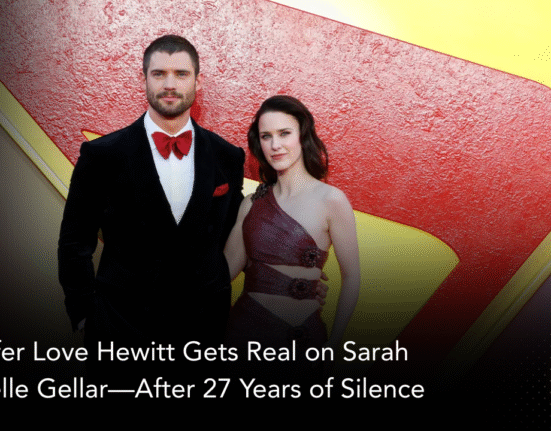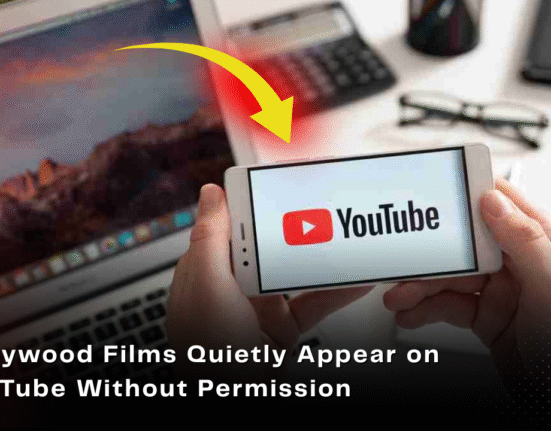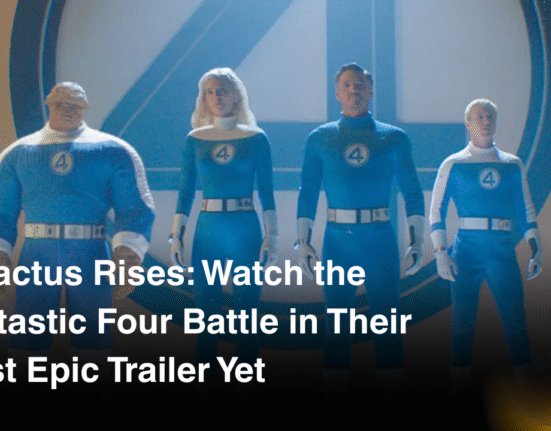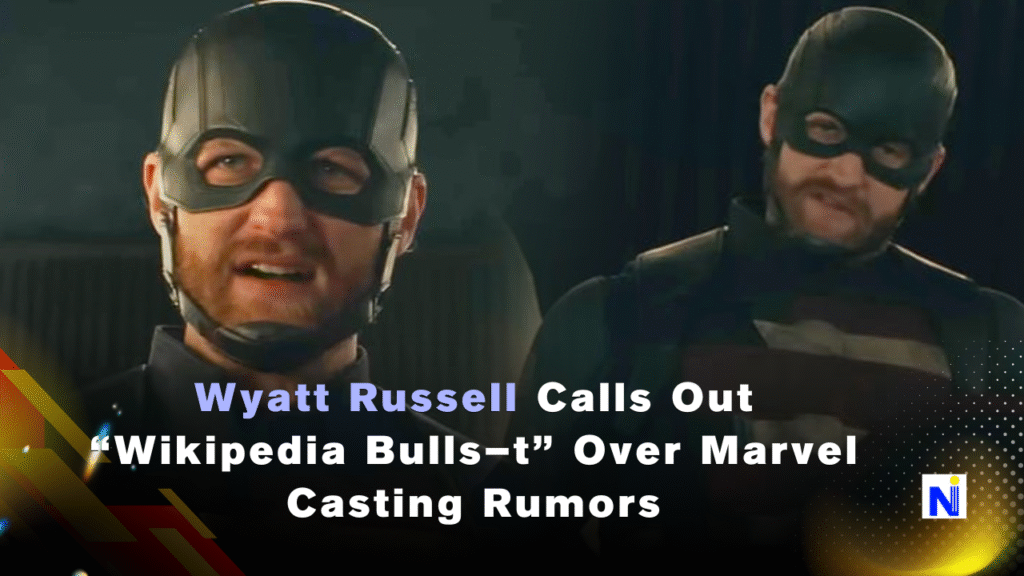
In a time when every casting decision in Hollywood seems to spark cultural commentary or online uproar, Wyatt Russell isn’t shying away from the conversation—he’s flipping it on its head. In a candid new interview, the actor best known for playing US Agent in The Falcon and the Winter Soldier and soon, Thunderbolts and Avengers: Doomsday, shot down speculation that his casting was some grand political message about race in America. His words? “That’s Wikipedia bulls–t.”
It’s not every day a Marvel actor addresses online rumors this bluntly, and Russell’s honesty opens up a broader conversation about how viewers interpret storytelling, representation, and character arcs in the MCU.
Let’s break down the most interesting takeaways from his interview, what it means for the Marvel Universe, and how this reflects the shifting terrain of superhero storytelling.
The Rumor: Was Wyatt Russell’s Casting Political Commentary?
The Origin of the Theory
The rumor that Marvel cast Wyatt Russell as a commentary on U.S. race relations traces back to a 2021 interview with Marvel Studios head Kevin Feige. He was asked by ESPN’s Andscape if the decision to replace Sam Wilson (a Black man) with John Walker (a white man) in The Falcon and the Winter Soldier was a deliberate reflection of systemic racial bias.
Feige responded vaguely:
“Whether that was conscious or not on the part of the people that made that decision, within the government of the story, it certainly is making a statement.”
That quote, layered with nuance, fueled a wave of think pieces and—more problematically—Wikipedia edits. Over time, speculation was accepted as fact by casual fans.
Wyatt Russell’s Response: “Wikipedia Bulls–t”
In his interview with The Hollywood Reporter, Wyatt Russell dismissed the racial speculation surrounding his casting, saying bluntly:
“That’s, like, Wikipedia bulls–t.”
He went on to explain the logic behind the storyline:
- John Walker is white in the comics.
- He’s a decorated war hero—not a villain—selected by the government to fill the vacuum left by Steve Rogers.
- Sam Wilson rejected the shield voluntarily at first.
- The serum brings out Walker’s insecurities, creating a more complex and flawed character.
Russell’s takeaway?
“You can play an insecure superhero who’s still good at his job, but needs to learn things about himself.”
What This Means for Marvel Storytelling
Character-Driven vs. Politically Driven Narratives
There’s a growing tension in Hollywood between genuine character development and the audience’s tendency to read everything through a political lens. Russell’s take brings us back to storytelling fundamentals:
- Not every casting choice is political.
- Not every character arc is a commentary on race, class, or gender.
- Sometimes a flawed, complex, insecure character is just that—no hidden message required.
Marvel’s Balancing Act
Marvel has walked the line between sociopolitical commentary and blockbuster entertainment for years. From Black Panther to Ms. Marvel, the studio has made conscious efforts toward inclusivity. But not every narrative fits that mold, and perhaps The Falcon and the Winter Soldier offered both character-driven arcs and some sociopolitical flavor—without being solely about race.
The John Walker Character Arc: More Than a Villain
From Soldier to Superhero (Sort Of)
John Walker was never supposed to be another Steve Rogers. He’s a by-the-book soldier thrown into an impossible role. That complexity makes him interesting:
- He tries to do good, but makes grave mistakes.
- He’s confident, but painfully insecure.
- He wants to help, but often fails to understand what “help” looks like.
Russell’s portrayal highlights those flaws instead of hiding them behind a perfect hero mask.
Evolution in Thunderbolts and Avengers: Doomsday
Russell hints that his character is constantly evolving:
“The John Walker I played in 2020 is completely different than the guy in Thunderbolts… and will be completely different again in Avengers: Doomsday.”
In other words, we’re watching a redemption arc in slow motion. One that’s relatable, messy, and a far cry from a political caricature.
5 Key Takeaways from Wyatt Russell’s Interview
- Casting was comic-accurate, not politically motivated.
- Walker’s insecurities—not his race—drive his character arc.
- Wyatt Russell sees long-term development in the role.
- MCU viewers need to separate story from speculation.
- Wikipedia may not always reflect Marvel’s true intent.
Public Reaction and Fandom Split
As with all Marvel topics, fan reactions are split:
- Some praised Russell’s honesty, calling his comments “refreshingly blunt.”
- Others criticized his dismissal, claiming he ignored the story’s racial undertones.
- Still more pointed out the danger of assuming political agendas where none exist.
Ultimately, Russell’s comments invite fans to take a step back and re-experience the story without editorial filters.
Marvel’s Casting Trends: Representation Without Agenda?
The Bigger Picture
Marvel has certainly made progress:
| Character | Actor | Diversity Highlight |
|---|---|---|
| Shang-Chi | Simu Liu | First Asian-led MCU film |
| Ms. Marvel | Iman Vellani | Muslim, Pakistani-American lead |
| Echo | Alaqua Cox | Indigenous, Deaf hero |
But Wyatt Russell’s casting shows that not every role needs to carry an activist message. Sometimes, a character arc can just be compelling without representing an entire demographic.
Not Every Superhero Has to Make a Statement
Wyatt Russell isn’t here to become the poster child for political narratives—or to shut them down completely. He’s simply offering an alternative view: one rooted in the original source material, strong character arcs, and a passion for the role itself.
His words may be blunt, but they reflect something many fans quietly feel—sometimes, it’s okay to enjoy the story for what it is.
What do you think—was the casting of John Walker political, or are we reading too much into it? Share your thoughts in the comments!


